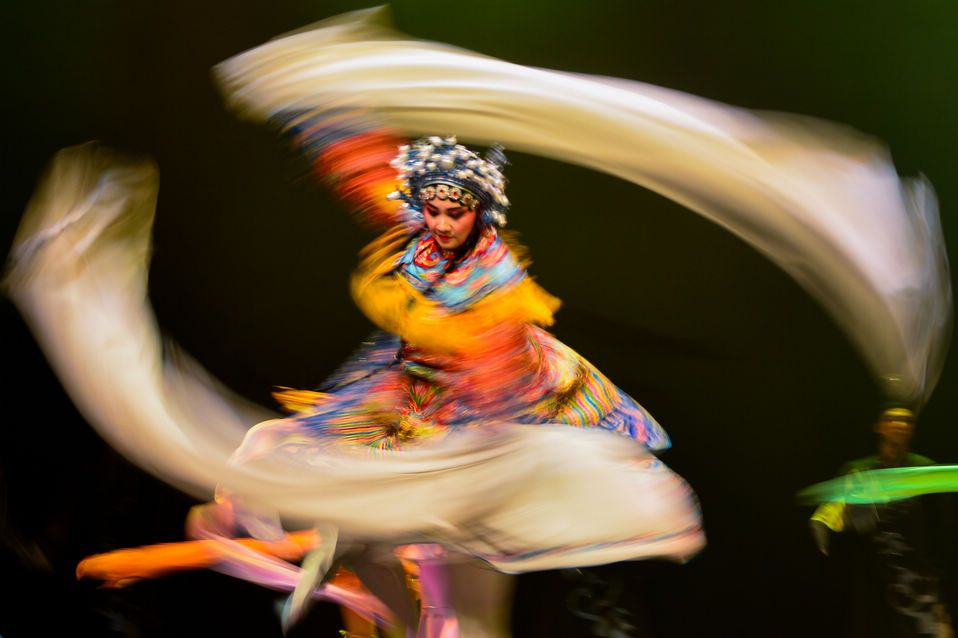
 |
| Lemon Tree Street dance group from Shenzhen, Guangdong Province Photo: Beijing Migrant Workers Home Cultural and Development Center (GT Photo) |
Now in its second year, the Migrant Workers Gala, a copycat of the CCTV Spring Festival Gala broadcast, will air on TV and stream online the first day of Chinese New Year. Initiated by migrant workers in Beijing, the group promises a grander show this year, aspiring to raise awareness of the vulnerable population.
Centered around a home theme, the two and a half-hour-long gala features 24 performances, including singing, dance and comedy acts - a majority of them created and performed by migrant workers from around the country. To attract more buzz, the gala will also have guest appearances from famed Chinese xiqu performer Xiao-xiangyu and the popular migrant workers-turned-singing duo Xuri Yanggang.
Organized by the Beijing Migrant Workers Home Cultural and Development Center, a nonprofit organization working toward improving migrant workers' rights, and CNNL.TV, a Shaanxi Province-based TV station dedicated to rural issues, the show is sponsored by NGO Oxfam Hong Kong, Sohu Weibo and China National Radio. The recording of the show finished up last week in Beijing, and will be broadcast on both local TV stations and online portal Sohu this Sunday.
The performances bring to light the hard life of migrant workers and their struggle for fair treatment and pay. For example, the song "Going Home" by Xuri Yanggang reflects on migrant workers' strong feelings for their faraway hometowns. Shang Hongqiang and his family perform "Left Behind," touching on the sad separation between migrant workers and their children.
"Every performance and performer in the show has a vivid story behind them," said Wang Dezhi, director of the show and a migrant worker who came to Beijing from North China's Inner Mongolia Autonomous Region 18 years ago. "Compared with last year's 15 performances, we are better organized this year. With the participation of well-known performers, we hope to generate more attention from Chinese society."
The video of the first Migrant Workers Gala attracted five million hits four days after it was posted online. Most of the viewers were migrant workers, college students or office workers.
"By sponsoring the gala, we hope that we can help improve migrant workers' living standards, and remove barriers that prevent them from integrating into cities," said Howard Liu, China program unit director for Oxfam Hong Kong. Oxfam has been working with the Beijing Migrant Workers Home Cultural and Development Center since 2003.
According to estimates from the National Bureau of Statistics, there were more than 250 million migrant workers by the end of 2011, with a majority of them taking menial jobs in major cities like Beijing, Shanghai and Guangzhou. They are often stereotyped and looked down upon for coming from poor, rural areas with minimal education.
"A lot of migrant workers lead a vagrant life in cities," Liu noted. "Some of them have to live in cramped accommodations provided by their employers, and some even stay in temporary tents on construction sites. Their children are discriminated against or misunderstood while attending public schools because of their parents."
The gala acknowledges the value of labor jobs in society, Liu said.
"It is important for migrant workers to understand their own value," said Liu.
In the past 20 years, the rights of migrant workers have improved thanks to the efforts of government and civil organizations, said Liu. He hopes that the gala will create more understanding and dialog between migrants and urbanites.
















 The journey is more important than the destination:Three people who opted for an adventure tell stories.
The journey is more important than the destination:Three people who opted for an adventure tell stories.


![]()
